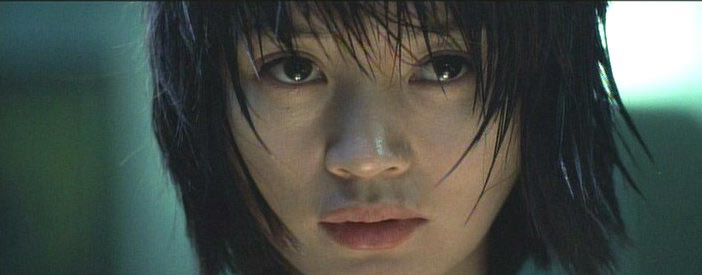Red Shoes
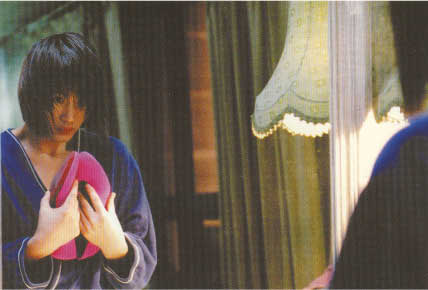
Director: Kim Yong-gyun
Year: 2005
Production Company: Generation Blue Film
Running Time: 103 minutes
It seems like every year now Korea has one horror film that is wrapped
in enigmatic mystery and shot like an art film. In 2003 there was “A Tale
of Two Sisters” and in 2004 they gave us “Spider Forest”. Now this year comes
the puzzling yet intriguing “Red Shoes”. I won’t even try to say that I completely
understand these films as they are intentionally built on a dreamlike quagmire
of confusing time lines, identity and reality. The one question you constantly
have to ask yourself in all three of these films is what is real and what
is not – and even afterwards this is never entirely clear. Though these films
often leave you with more questions than answers, that is part of the fun.
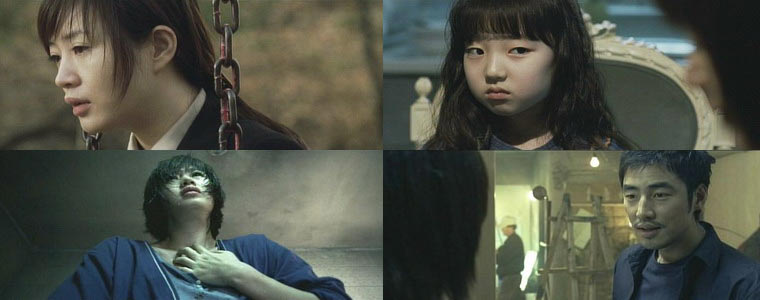
Stunningly shot with deep colors, striking close-ups and fevered imagery,
“Red Shoes” veers wildly between art film and genre film, but every frame
is beautifully thought out and rendered. The film is cluttered emotionally
with almost too much angst – paranoia, anger, jealousy, infidelity, obsession,
madness, sexual desire and a suggested Electra Complex. All these tangled
up emotions create a messy layered sense of psychosis that surrounds the
basic horror elements of the story with unnerving effect. Assisting all this
are isolated urban settings, eerie atmospherics, a jarring musical score
and some terrific acting from Kim Hye-soo and Park Yeon-ah (who succeeds
the little girl in “The Phone” as one more reason never to have children!).
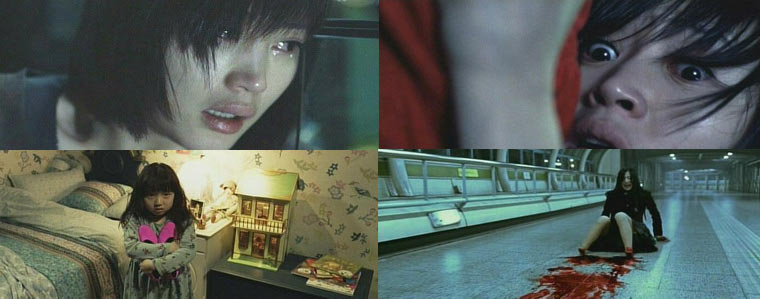
The film begins in pure horror genre mode – a young female student waits
all alone on the subway platform for her friend when she suddenly notices
a pair of red (though really closer to pink) high heeled shoes perched near
the edge of the track. They beckon her forward and suddenly they are on her
feet, but her friend shows up and demands the shoes leading to a fight between
them in which the friend gets the shoes and walks away in them . . . but
not for long. This is just a mood setter though and the real story soon begins.
Sun-jae (Kim Hye-soo) appears to be in a loveless marriage to her husband
(Lee Uhl), but she dotes on her young daughter Tae-soo (Park Yeon-ah). One
afternoon she comes home early to look for Tae-soo and instead discovers
her husband with another woman. She and Tae-soo move out and into a small
apartment, but on the subway one day she notices a pair of red shoes sitting
alone and she picks them up and takes them home to add to her large collection
of stylish shoes. Not a good thing clearly.
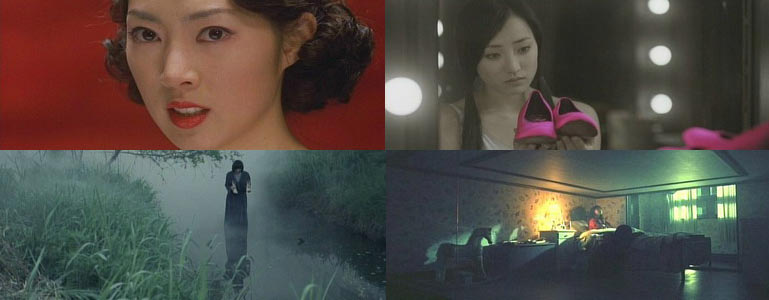
The shoes have some magical effect – they make you feel younger, sexier,
more alive – or in the case of Tae-soo who becomes fascinated with the shoes
– older and more womanly – and much creepier. Sun-jae meets a handsome interior
designer (Kim Sung-su) and is attracted to him -”those red shoes would look
great on you” he tells her and she becomes obsessed with them and gets into
physical fights with her little girl over them – both seem to be on the verge
of madness and the seed of this appears to go back to 1944 when a love triangle
ended up in blood and tragedy. As Sun-jae begins to realize the past history
of the shoes she fears that her daughter is next to die and frantically tries
along with the designer to discover an answer to this curse. But the answer
isn’t one she will like.
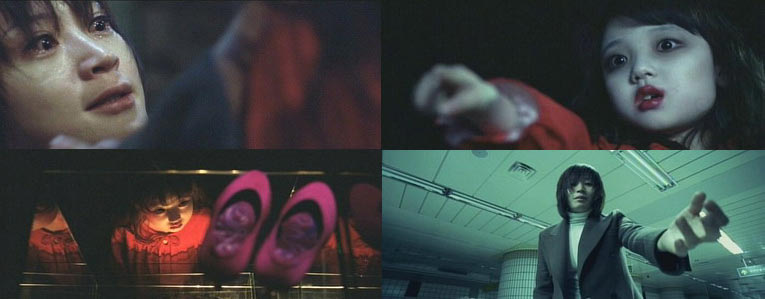
Whether any of this really makes sense or fits together is questionable and
the switch between nightmares and supposed reality is at times maddeningly
confusing, but it looks wonderfully surreal and definitely gives a few jolts.
The Korean DVD has two versions of the ending of the film – the shorter one
labeled “15” was the theatrical version while the longer one labeled “18”
is the director’s cut. Unfortunately, the director’s cut has no English subtitles
but I watched the ending of it and it is quite different than the other one
– and seems to be favored by many though I thought both were interesting.
My rating for this film: 7.5
Trailer
Reviewed: 01/06
Previous films from the Director:
Wanee and Junah (2001)
